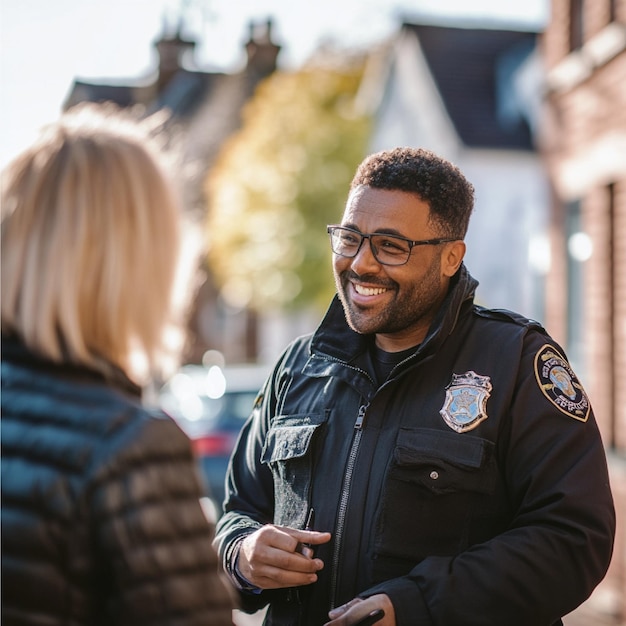Neighborhood watching has long been a cornerstone of community safety, allowing residents to take an active role in protecting their neighborhoods. Traditionally, this meant organizing local meetings, sharing information via phone trees, and keeping an eye out for suspicious activity. However, as technology continues to advance, so too does the way we approach neighborhood safety.
Today, online tools and community surveys are transforming the landscape of neighborhood watching, making it more efficient, inclusive, and effective. These digital advancements offer a host of benefits that traditional methods simply cannot match.
The Evolution of Neighborhood Watching
In the past, neighborhood watching programs were often limited by the sheer logistics of organizing and communicating. Residents would meet in person, share information via word of mouth, and rely on physical neighborhood watch signs to alert potential criminals. While these methods were effective to a degree, they lacked the immediacy and scope of modern digital tools.
Online Tools for Neighborhood Watching
The rise of online tools has revolutionized neighborhood watching programs. Platforms like community forums, social media groups, and dedicated neighborhood watch apps provide residents with instant communication channels. These tools allow for real-time updates, faster information sharing, and a broader reach within the community.
One of the most significant advancements is the integration of online surveys into neighborhood watching programs. These surveys enable police departments and community leaders to gather valuable feedback from residents quickly and efficiently. By using online surveys, communities can better understand their safety concerns, identify problem areas, and tailor their watch programs to address specific issues.
Community Surveys and Safety
Online surveys are a game-changer for neighborhood watching programs. They allow for anonymous feedback, ensuring that residents feel comfortable sharing their honest opinions and concerns. This transparency is crucial for building trust between the community and law enforcement.
Surveys can cover various aspects of neighborhood safety, including perceptions of crime, effectiveness of existing programs, and suggestions for improvement. The data collected can help police agencies prioritize their efforts, allocate resources more effectively, and enhance overall community safety.
The Future of Neighborhood Watching
As technology continues to evolve, so too will the tools available for neighborhood watching. We can expect even more sophisticated apps and platforms that offer enhanced features like data analytics, interactive maps, and real-time alerts. These advancements will further streamline the process of gathering community feedback and improving neighborhood safety.
In conclusion, technology is playing a pivotal role in the future of neighborhood watching. By embracing online tools and community surveys, neighborhoods can enhance their safety programs, foster better communication, and build stronger, more resilient communities.
Top Benefits of Using Online Surveys for Neighborhood Watching Programs
Neighborhood watching programs are essential for maintaining community safety and fostering a collaborative approach to crime prevention. One of the most effective ways to enhance these programs is by utilizing online surveys. These surveys offer a range of benefits that traditional methods cannot match, making them a valuable tool for police agencies and community leaders.
Efficient Data Collection
Online surveys provide a quick and efficient way to gather data from residents. Unlike paper surveys, which can be time-consuming to distribute and analyze, online surveys allow for immediate collection and processing of responses. This efficiency ensures that the data is up-to-date and relevant, enabling police departments to make informed decisions swiftly.
Enhanced Reach and Accessibility
One of the major advantages of online surveys is their ability to reach a broader audience. Residents can complete surveys from the comfort of their homes, using any device with internet access. This increased accessibility ensures that a diverse range of voices is heard, including those who may not be able to participate in traditional in-person meetings or events.
Anonymity and Honesty
Online surveys offer a level of anonymity that encourages residents to provide honest and candid feedback. This is particularly important in sensitive areas such as crime and safety concerns. When residents know their responses are anonymous, they are more likely to share their true opinions and experiences, leading to more accurate and actionable data.
Real-Time Feedback and Analysis
Online surveys provide real-time feedback, allowing police agencies to quickly identify trends and patterns in community concerns. This immediate access to data enables law enforcement to respond more effectively to emerging issues and adapt their strategies based on current community needs.
Cost-Effectiveness
Traditional survey methods can be costly, involving expenses for printing, distribution, and analysis. Online surveys, on the other hand, are generally more cost-effective. They eliminate the need for physical materials and reduce the time and resources required for data collection and analysis.
Customizable and Versatile
Online surveys can be easily customized to address specific topics or concerns. Police agencies can design surveys to gather information on various aspects of neighborhood safety, from crime rates to the effectiveness of existing programs. This versatility allows for targeted feedback that can be used to make precise improvements.
Building Community Engagement
Using online surveys demonstrates a commitment to engaging with the community and valuing their input. When residents see that their feedback is being actively sought and considered, they are more likely to feel involved and invested in neighborhood safety efforts.
In summary, online surveys offer numerous benefits for neighborhood watching programs, including efficient data collection, enhanced reach, anonymity, real-time feedback, cost-effectiveness, customization, and improved community engagement. By leveraging these advantages, police agencies can enhance their neighborhood watch programs and work more effectively with their communities to promote safety and well-being.
Get started with Officer Survey today and conduct your neighborhood watch survey!






